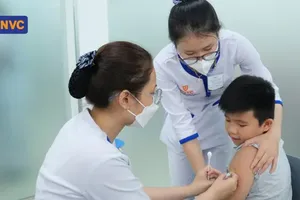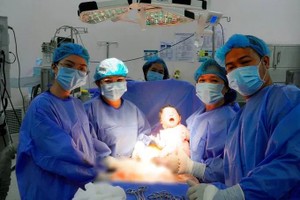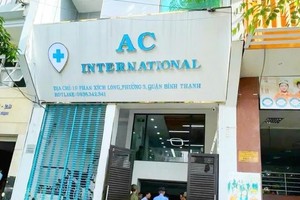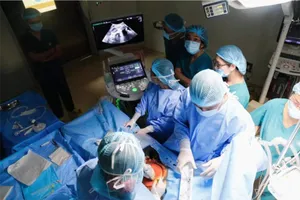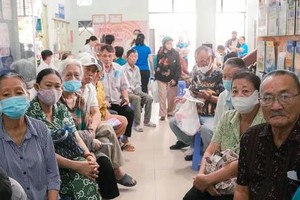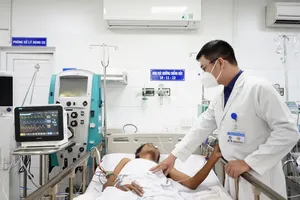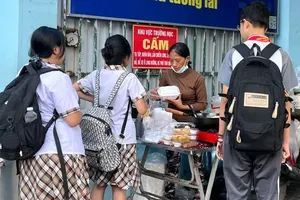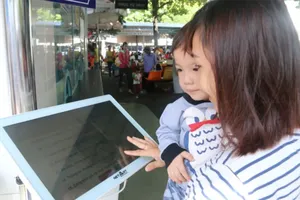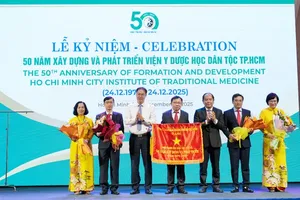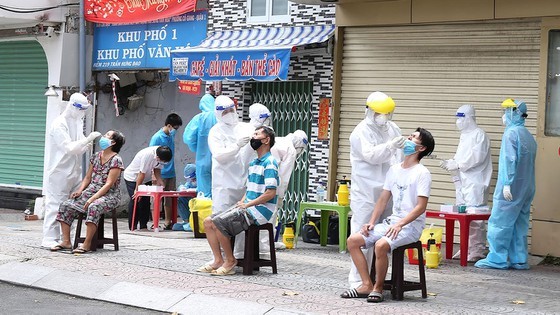 The HCMC health sector promotes taking samples for testing (Photo: SGGP)
The HCMC health sector promotes taking samples for testing (Photo: SGGP)
Presently, more patients have been discharged from hospitals and Covid-19 treatment facilities, and the numbers of serious cases and deaths have been reducing. This has shown the changes in the treatment plan proved effective, said Associate Professor Tang Chi Thuong, Director of the Department of Health in HCMC.
According to the Ho Chi Minh City Department of Health, the screening will help detect infections in time and prevent further spread and the health sector detects about 5,000 Covid-19 patients every day, but the health sector has developed an appropriate treatment plan for people with symptoms of Covid-19 by severity level to avoid hospital transfer and reduce mortality.
Regarding testing for Covid-19 patients, the Ministry of Health has directed Ho Chi Minh City to carry out testing and screening on a large scale to quickly separate infected people from the community. Additionally, the HCMC health sector ought to supplement the treatment plan ensuring adequate oxygen tankers, ventilators, emergency beds, and other necessary medical equipment for Covid-19 treatment facilities.
It is expected that by September 6, when the second round of testing is completed, Ho Chi Minh City will redraw the epidemic map of red zones, orange zones, yellow zones, and green zones.
According to the City Department of Health, within seven days of widespread testing throughout the city with a focus on high-risk and very high-risk areas, more Covid-19 patients have been discovered in the community day by day. Of approximately 1,677,154 people in red zones and orange zones citywide have undergone rapid antigen tests, some 64,299 people turned out to be positive for SARS-CoV-2 accounting for 3.8 percent of total samples.
Moreover, only on August 27, the city reported 4,551 new Covid-19 cases of 5,357 new cases countrywide accounting for nearly 85 percent.
According to the health sector, Covid-19 positive people in the community have been detected in recent days, mainly in places with high population density, small alleys, and densely populated places because people have not fully complied with 5K principles.
The increase in the number of Covid-19 infected people in the community may make people a bit worried, the health sector vowed to detect all cases of Covid-19 in the community, said Dr. Thuong.
He added the city's positivity rate of total sampled cases is now around 3.8 percent, still well below the world's high level of infection with 5 percent.
Doctor Truong Huu Khanh from Children's Hospital No. 1 in Ho Chi Minh City noticed that up to 80 percent of people with Covid-19 in the community have the mild disease which will help the health sector to classify early and have appropriate treatment, avoiding too many people becoming seriously ill and help reduce the mortality rate.
For example, after undergoing testing on August 28, three of the family members of Ms. Ho Thi Thuy in a boarding house in Binh An ward, Thu Duc City were all negative whereas she was positive. She felt happy because her husband and children may catch the virus from her if she did not do Covid-19 test in a timely manner. She was taken to concentrated isolation at Nguyen Hien Primary School in the ward as she has a mild symptom.
As the number of infected cases increases rapidly, treatment demand is higher in recent days, the health sector has reclassified treatment plans including home isolation and treatment, isolation areas in wards and districts and treatment at hospitals for severe cases. Particularly, the city has set up 413 mobile medical stations and 413 groups of military medical doctors in charge of treating and monitoring for 50,000 people with Covid-19 at home.
These 413 mobile medical stations and 413 groups of military medical doctors have provided good care to Covid-19 people who are isolated at home. The station's doctors will examine, provide medicine packages and give first aid for these patients at home, Dr. Thuong added.
Mobile medical stations are supported by military doctors, the community Covid-19 team, and the quick response team; additionally, these stations are fully equipped with essential drugs, including antiretroviral drug Molnupiravir for Covid-19 patients with mild symptoms. Covid-19 patients at home have been told a hotline for advice and support when necessary to help them feel secure”, said Associate Professor Dr. Tang Chi Thuong.
